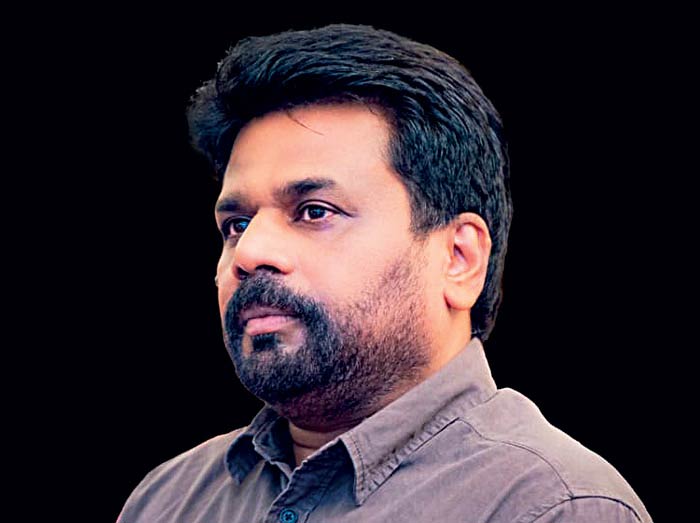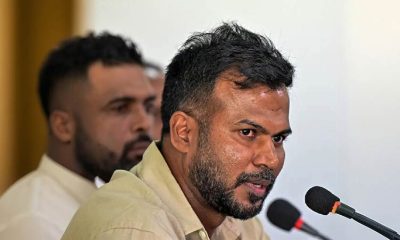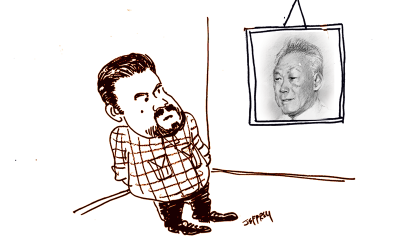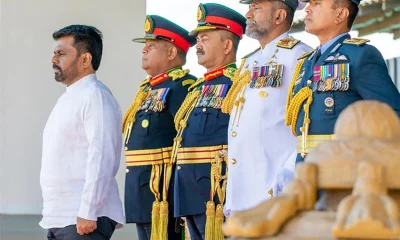Opinion
UNHRC’s 49th Session:

A brief recap and suggestions of a way forward
by Dharshan Weerasekera
The United Nations Human Rights Commission’s (UNHRC) 49th Session ended on 1st April and the question is whether it was a success or failure for Sri Lanka. In my opinion, the session was a success because at the interactive dialogue, following the tabling of the High Commissioner’s report on Sri Lanka, 31 nations spoke in support of this country while 12 spoke against. It shows that Sri Lanka is not isolated on the world stage with regard to human rights, as some critics claim.
This is an opportune time to assess the strengths and weaknesses of the government’s position and reflect on a way forward. I argue that,
a) Sri Lanka’s strength at the moment is that the principled stance taken by the government in rejecting resolution 46/1 last year which, among other things, authorised an evidence-gathering mechanism on Sri Lanka was appreciated by the majority of nations,
b) the weakness is that the High Commissioner has called for “alternative strategies’ including universal jurisdiction to pursue allegations of war crimes and other crimes against Sri Lanka and the government will have to deal with these efforts regardless of the domestic mechanisms it has established to address the concerns raised by the Council in resolution 46/1.
In this article, I shall briefly discuss these issues and make some recommendations on a way forward.
The GOSL’s stance and
expressions of support by various nations
At the commencement of the interactive dialogue, Minister of Foreign Affairs Prof. G.L. Peiris eloquently set out the government’s objections to the High Commissioner’s report (A/HRC/49/9) along with resolution 46/1. He says,
“The Resolution 46/1 was adopted by a divided vote in this Council. Sri Lanka and other Member States opposed this resolution in fundamental disagreement with its deeply flawed procedure and unacceptable content, in particular its operative paragraph 6 regarding a so-called evidence-gathering mechanism. The resolution was directly contrary to the Council’s founding principles of impartiality, objectivity and non-selectivity. It went beyond the mandate that Member States conferred on it by UNGA resolution 60/251.” (www.lankamission,org, 4 March 2022).
As pointed out earlier, 31 nations then spoke in support of Sri Lanka. The following are some of the things they said. The head of the Philippine delegation said,
“The Philippines voted against HRC resolution 46/1 as we disagree with the role being set for the OHCHR in collecting evidence and developing strategies for future accountability processes. The decision of the OHCHR to establish an “accountability project” is a breach of the text of the mandate and in effect a usurpation of the role of the State as duty bearer. We are not convinced that OHCHR has the mandate and capacity to carry out this so-called project with the highest standards of objectivity and professional rigor.” (Statement at the interactive dialogue, 4 March 2022)
The head of delegation for Cuba said, “The Human Rights Council must privilege cooperation and constructive dialogue as well as universal mechanisms such as the UPR as the only guarantee to address human rights issues in a fair and non-selective manner. The resolution that gives rise to this dialogue does not have the support of the country concerned. At this point, there should be awareness that any action or mandate that derives from it will only contribute to politicisation, selectivity and double standards that have been imposed on this body and will not make any contribution to the promotion of human rights.” (Statement at the interactive dialogue, 4 March 2022)
The head of delegation for Ethiopia said, “Ethiopia has always stressed the importance of abiding by the principles of universality, impartiality and neutrality. The primary responsibility to promote and protect human rights rests with the individual country. As a subsidiary organ of the General Assembly of the United Nations the Council must live up to the values and fundamental principles enshrined in the Charter and resolution 60/251 which calls for the sovereign equality and respect for agreed international rules—fundamentals which must work for all.” (Statement at the interactive dialogue, 4 March 2022)
Meanwhile, the head of the delegation for Venezuela pointed out, “The Council resolution that gave rise to the submitted written update does not have the consent of Sri Lanka. That resolution set a dangerous precedent by requiring the Office to collect criminal evidence for future prosecutions, a mandate that was never conferred on it by General Assembly resolution 48/141 that created the mandate.” (Statement at the interactive dialogue, 4 March 2022)
Finally, Ambassador Hamid Ahmadi speaking for the Islamic Republic of Iran, said, “The Resolution 60/251 upholds the need for genuine dialogue and cooperation; the UN Human Rights bodies and mechanisms should support Governments, upon their consent, in implementing their obligations under applicable international human rights law and should not assume roles that go beyond their mandates as stated in resolutions 48/141 and 60/251.” (Statement at the interactive dialogue, 4 March 2022)
The above quotes, and there are many others, indicate that the GOSL is on solid legal ground when it insists that in adopting resolution 46/1 the Council has exceeded its mandate. This point should therefore play a central role in any strategy of the GOSL going forward.
The weakness in the GOSL’s position
The weakness in the government’s position is that, in spite of the domestic mechanisms—these include the Office on Missing Persons, Office of Reparations, the Presidential Commission of Inquiry reviewing the conclusions of previous Presidential Commissions including the LLRC and the Paranagama Commission and so on—the High Commissioner has called on the Council to pursue “alternate strategies” including universal jurisdiction to advance accountability. She says,
“The current government has not only demonstrated its unwillingness to pursue accountability, it has incorporated military officials implicated in alleged war crimes into the highest levels of government reinforcing a narrative of impunity. For these reasons, I have called on the Council to pursue alternate strategies to advance accountability at the international level. Regarding our implementation of the accountability related aspects of resolution 46/1, preparatory work is underway. Our team will analyze the information that has been consolidated in the evidence repository using a criminal justice perspective with a view to identifying gaps and priorities for further information collection, and incorporating a victim-centered approach.” (4 March 2022, )
The above indicates that, the work of the repository has progressed considerably and evidence is being “consolidated” with a view to initiating criminal prosecutions. In these circumstances, one can expect actions under universal jurisdiction to start being filed against selected officers and civilian leaders who oversaw the war against the LTTE in the near future.
In the event, the government would have to spend enormous amounts of money to defend the accused persons unless the government plans on leaving them to defend themselves. Meanwhile, the government would also suffer irreparable harm as a result of the loss of face and humiliation of letting officers and men that most Sri Lankans whether rightly or wrongly consider as heroes who fought in order to free the country from terrorism, be dragged in front of foreign courts on charges that the government itself says are based on unsubstantiated allegations.
It would by definition be an exercise in futility for the government to expend energy and resources to address the concerns raised by the Council including to brief members on the progress of the domestic mechanisms if the Council nevertheless persists in such parallel measures. Therefore, the way forward must include the means to deal with this problem.
Recommendations
Firstly, in addition to keeping the friendly nations updated on the activities of the domestic mechanisms, the government should in consultation with the nations that spoke in favour at the 49th session, produce a legal opinion on the impugned evidence-gathering mechanism and file it of record with the Council. This would discourage people, especially judges, from relying on material forwarded by or associated with the unit.
Secondly, the government should establish a mechanism to “collect, consolidate, analyze and preserve” the mountain of material including photographic evidence of soldier’s helping civilians out of the battlefield, records of the food and medicines sent to the conflict during the relevant period, testimonies of foreign journalists and others who were at or near the conflict zone during the crucial period, testimonies of the thousands of rescued civilians as well as rehabilitated LTTE cadres and so on, to create a repository of exculpatory evidence that can be made available to the Council as well as to foreign judges before whom actions under universal jurisdiction may be filed in order to help them gain some perspective on the charges.
Thirdly, the government in consultation with like-minded nations should launch a concerted effort to discuss reform at the UNHRC focused on re-affirming the principles and purposes of the Council. Such a drive would blunt any effort by the “Core Group’ and others to introduce yet another country-specific resolution on Sri Lanka at the UNHRC’s 51st Session in September.
(The writer is an Attorney-at-law and a Consultant to the Strategic Communications Unit of the Lakshman Kadirgamar Institute)
Opinion
Christmas Roots and Hearts Aglow:

Rekindling Faith, Peace, and Love Below…!
(Practical Tips for Christmas Bliss)
by Rev. Fr. (Dr.) Eymard Fernando
Bishop’s House, Kurunegala.
In an increasingly and incredibly materialised and commercialised world today, the core meaning of Christmas often seems distorted, being overshadowed by consumerism, bustling sales, and extravagant festivities. Yet, at its heart, Christmas is a season meant for reflection, change, love, and unity – a time when people gather to celebrate gratitude and generosity centred around the Divine Baby. As we explore the roots of Christmas and what it can mean for us in today’s world, we uncover themes of faith, hope, peace, and kindness that transcend religious boundaries, reminding us of the true purpose and value of God becoming man.
Therefore, let us delve a little into the origins and deeper significance of Christmas, exploring ways to return to these roots through themes of generosity, togetherness, and humility. By rediscovering these essential values, we can certainly celebrate Christmas as a season that brings light and life to our world.
A Season of Faith and Reflection
Christmas has its origins in the Birth of Jesus Christ, a moment celebrated by Christians as the arrival of hope and salvation. However, even beyond its religious significance, Christmas season has become a time when many reflect on themes of love, hope, and renewal. The story of the Nativity conveys universal values: humility, peace, and the power of hope.
The Birth of Jesus in a humble manger represents a profound lesson about simplicity and compassion. As theologian Henri Nouwen noted, “Jesus was born in the least expected place to the least expected people in the least expected way.” This simplicity, intertwined with humility, challenges the commercialised image of Christmas today. Instead of focusing on luxury and excess, the roots of Christmas invite us to value the simple, meaningful aspects of life: faith, family, and fraternity.
In today’s world, we can return to these roots by setting aside time for personal reflection during Christmas. Practising gratitude, being mindful of those less fortunate, and reaching out to loved ones are all different ways we can honour the spiritual foundation of Christmas. Thus, we all can benefit from a moment of stillness and introspection during this busy time of the year.
The Spirit of Generosity and Compassion
Christmas has always been a season of sharing, inspired by the gifts of the Magi to the Christ- Child and later, Saint Nicholas’ acts of charity as santa claus. However, the tradition of sharing has gradually shifted from simple acts of kindness to an intense focus on material gifts. According to American sociologist Juliet Schor, “We give to show love, but in a culture that equates love with spending, our giving has been commercialized.”
However, in recent years, a shift towards alternative, meaningful sharing has gained momentum in the form of a worthy ‘retromarch’. Many individuals and families now choose to give to charity in a loved one’s name or to offer experiences rather than material goods. This form of sharing very much aligns with the true spirit of Christmas, embodying generosity without extravagance.
Likewise, local initiatives, such as community food drives and clothing and toy collections, have become popular ways to give back. Participating in these efforts allows people to connect with others in their communities, creating a shared sense of purpose and compassion. As Mother Teresa famously said, “It’s not how much we give, but how much love we put into giving.” By focusing mainly on the intention behind our gifts, we can bring the spirit of Christmas alive in our own hearts and communities. However, the magic of Christmas is not very much in presents and parties, but in His Presence!
Family and Togetherness: A Time for Connection
The Christmas season is often one of the few times in the year when families come together, setting aside time to reconnect, reflect, and celebrate. This emphasis on togetherness is deeply rooted in the season’s traditions, dating back to ancient winter solstice festivals where communities gathered to share warmth and light during the darkest days of the year.
In modern times, when families may be dispersed across cities or even continents, Christmas remains a crucial opportunity to reconnect. This communal emphasis shows how Christmas, regardless of religious affiliations, has become a unifying tradition centred on family.
Simple traditions – like sharing a meal, decorating a Christmas tree, or singing carols together – allow families to pause, connect, and create memories. These rituals not only strengthen family bonds but also convey the essence of Christmas for younger generations. As American author Richard Paul Evans, best known for his inspirational and heartfelt novels says, “The smells, tastes, and sounds of Christmas are the roots that nurture a family tree.” By focusing on togetherness, Christmas serves as a reminder of the love and connection that sustain us all throughout the New Year.
Peace on Earth: Seeking Unity in This Divided World
One of the most significant messages of Christmas is the call for ‘Peace on Earth’. Yet, today’s world is marked by political, social, cultural, economic and various other divisions, making the pursuit of peace and unity more relevant than ever before. From the hymn ‘Silent Night’ to the angels’ proclamation of peace, Christmas has long symbolized hope in times of conflict.
A poignant historical example of Christmas promoting peace is the Christmas Truce of 1914, during World War I. British and German soldiers, entrenched on the Western Front, laid down their arms on Christmas Eve to exchange greetings, sing carols, and share small gifts. This unexpected truce, though brief, reminded soldiers of their shared humanity amidst the horrors of war. It symbolised the power of Christmas to transcend differences and bring people together, even during a time of darkness and death.
Today, peace-oriented traditions continue to play an important role during Christmas season. Interfaith gatherings, community meals, and charitable events all serve as spaces for people from different backgrounds to connect and understand one another. In a world often divided by ideological and political differences, Christmas can become a season with a reason for open dialogue, compassion, and understanding. Embracing Christmas’ call for peace and unity allows us to honour its roots in ways that resonate with our global context.
Practising Simplicity and Mindfulness
While Christmas has grown as a metaphor for lavish celebrations and enchanting tamashas, the season’s roots actually encourage simplicity and mindfulness. The traditional story of Jesus’ Birth in a manger speaks to a humble beginning, one that invites us to cherish what truly matters in life. Embracing that simplicity allows us shift our focus from material abundance to the richness of shared experiences.
In recent years, minimalism and mindfulness have gained popularity as antidotes to the consumer-driven spendthrift lifestyle with a ‘shop till you drop’ psychosis. Many people now opt for simpler, handmade gifts or choose to forgo elaborate decorations in favour of natural elements. These preferred choices reflect a desire to connect more authentically with the true meaning of Christmas. Instead of flashy lights or mountains of gifts, families can create meaningful memories through acts of kindness or spending quality time together strengthening family ties. One modern example for this is the ‘Reverse Advent Calendar’ tradition. Instead of receiving a treat each day, participants place an item – such as dry rations or clothing – in a box to donate to those in need. This practice helps to instil gratitude and generosity, shifting the focus from consumption to community service. By embracing a simpler and more mindful and meaningful approach, we honour the humble roots of Christmas and foster a deeper sense of appreciation for life’s countless blessings.
A Journey of Rediscovering…
 Returning to the roots of Christmas is a journey of rediscovering faith, kindness, and togetherness in a world that often moves at a very rapid pace. The true spirit of Christmas calls us to reflect on values that transcend time and culture: humility, compassion, peace, unity, and love. In embracing these themes, we transform Christmas from a season of materialism into one pregnant with meaning.
Returning to the roots of Christmas is a journey of rediscovering faith, kindness, and togetherness in a world that often moves at a very rapid pace. The true spirit of Christmas calls us to reflect on values that transcend time and culture: humility, compassion, peace, unity, and love. In embracing these themes, we transform Christmas from a season of materialism into one pregnant with meaning.
As we celebrate Christmas this year, let us remember that this event is not about what we have, but about who we are with and how we make others feel. It is a season of opening our hearts and minds to others, of putting love into action, and of finding moments of peace and tranquility in the midst of cacophony, disorder and chaos. By going back to the roots of Christmas, let us therefore invite joy, hope, and kindness into our lives, allowing Christmas grow and glow with renewed purpose and profound meaning resulting in a new birth in our own lives!
Opinion
Closer look at regulatory oversight and its impact on tourism

Sri Lanka’s Struggling Aviation Sector:
Sri Lanka, a nation blessed with cultural richness, breath-taking landscapes, and strategic geographic positioning, has long been considered a gateway to Asia’s tourism market. Yet behind the scenes, the country’s domestic aviation sector is struggling, caught in a web of regulatory challenges and infrastructural stagnation. Two key documents shed light on these issues: the ICAO Universal Safety Oversight Audit Programme (USOAP) Continuous Monitoring Approach (CMA) Final Report (November 2018) on Sri Lanka’s civil aviation system, and a recent panel discussion organised by the Organisation of Professional Associations (OPA) on “The Role of Domestic Aviation in Sri Lankan Tourism.”
Taken together, these sources paint a picture of a sector mired in what industry experts call “over-regulation” and “lack of facilitation.” This situation not only impedes the growth of domestic aviation but also adversely affects the country’s tourism potential. At the heart of the problem lies the Civil Aviation Authority of Sri Lanka (CAASL), described as being more obstructive than supportive, thereby stifling innovation and progress in the industry. ICAO highlights the need for a more tailored regulatory approach, stating as a high priority that “all the applicable provisions of the Annexes to the Chicago Convention are properly transposed to Sri Lanka national regulations, instead of a word-by-word copy of the Annex provisions, to ensure that the national regulations provide for clear requirements of the State and are implementable and enforceable.”
The OPA panel discussion reinforces these findings. It offers a historical overview going back to the 1950s, when domestic aviation briefly thrived under partnerships like Air Ceylon and Australian National Airways (ANA). Yet by the 1960s and beyond, domestic aviation began to decline due to inadequate regulatory support, financial hurdles, and misguided policy decisions. As the OPA discussion states: “During the discussions, fingers were pointed at the Regulator, Civil Aviation Authority Sri Lanka (CAASL), Airport and Aviation Sri Lanka (AASL), and the Sri Lanka Air Force (SLAF) for being more obstructive than facilitative as a direct result of their employment of personnel who are unprofessional, inefficient and unqualified.” This criticism suggests that the CAASL applies international standards (SARPs) too rigidly, without considering alternative means of compliance suitable for local conditions. Instead of fostering a dynamic and cost-effective domestic aviation environment, over-regulation hampers operators and prevents them from serving remote destinations efficiently.
The impact on tourism is profound. High-end travellers value time and comfort, and efficient domestic aviation can transform hours-long road trips into brief, scenic flights. As noted in the OPA document, domestic aviation could attract “high end ‘luxury tourists’ who preferred to go from their departure point to their final destination in minimum time.” Yet over-regulation, poor infrastructure, and insufficient marketing force many visitors to rely on time-consuming road travel or skip certain destinations altogether.
Summarising the problem, the OPA document states: “The overarching message was that domestic aviation and the tourism industry do not seem to work together as a team.” Both the ICAO report and the OPA discussion not only highlight deficiencies but also propose solutions. ICAO recommends that the CAASL “conduct a structured review of all Regulations/Implementing Standards” to ensure regulations are more practical and enforceable. Despite these clear directives, it remains puzzling why the current administration has not acted on these recommendations and taken advantage of the “low-hanging fruit” within domestic aviation. Sri Lanka stands at a crossroads. Its natural beauty, cultural diversity, and strategic location create a promising backdrop for a thriving tourism industry. Domestic aviation can serve as a critical catalyst in this resurgence. However, the documents make it clear that unless the CAASL heeds ICAO’s recommendations and the OPA’s insights, regulatory gridlock will continue to hold the sector back. If the CAASL adopts the suggested reforms, Sri Lanka’s domestic aviation could finally take off, bolstering the tourism sector and paving the way for sustainable growth, greater foreign exchange earnings, and enhanced competitiveness in the regional travel market.
Aircraft Owners’ and Operators’ Association
Opinion
What AKD and NPP should bear in mind

This is to thank you for drawing attention to the dangers posed by India to our society and its culture and other basic resources as well as its on-going exertions towards encroaching on our maritime territory.
As your distinguished correspondent Neville Ladduwahetty has pointed out in an article—President Dissanayake’s forthcoming visit to India: Issues Sri Lanka should take up with New Delhi (09 Dec.)—in your columns, what the NPP government led by Anura Kumara Dissanayake should bear in mind is that India is not our friend. Indeed, as I myself pointed out in an opinion piece published by you many months ago, India’s practice of greed has alienated everyone of the countries that lie on or in proximity to its borders from Pakistan in the west to Bangladesh in the east, to Sri Lanka and the Maldives in the south with that vast territory of distinct cultures that cover Jammu and Kashmir, Nepal and Bhutan all capped by China.
India mouths the observations made by the rest of the world on what is euphemistically called “western” “hypocrisy” (and not the pack of looters and genocidal goons they have long been). The reason for that has been quite evident but has been pronounced a few days ago in statement/s by Jaishanker (a public servant who has found politics more to his taste) on India’s “complicity” (what a seeking-to-be-neutral term) in the criminal assaults on the people of and around Palestine.
And, if one were to ask, “Who are they?” they are a widespread group of rogue states and range from the prime mover (the USA) to arms-vendors across Europe, to traders in fossil fuels and to money-makers by any other means such as Egypt’s Sisi, Pakistan’s unelected rulers in military uniform whether home-bred or governed by the “policy’ makers in Washington and right down to the wallahs of a rich mixture of rogue businessmen, politicians cum mythmakers masked in “religion” in India.
And what have we here? The same manoeuvres as elsewhere with treacherous politicians of our own in place of the Marcos line in the Philippines, the Sharifs et al in Pakistan and a whole string of the like in Africa and Latin America.
How subservient the more recent lot here are and how much the US-Indian combine can chalk up as “success” can be seen in a wealthy Indian businessman’s role in support of the American-underwritten carnival on Galle Face green to remove Gotabaya from office. An exertion capped by insinuating their long-term friend, Ranil Wickresinghe, into Parliament and the presidency with not a whisper of legitimacy. And that’s the sort-of man who spent hundreds, maybe thousands of our hard-earned ‘valuable foreign exchange’ going for funerals and other bits of show-dom. We await the present administration to make public an audit of those and other expenditures incurred by him and his cohorts, in addition of course to the ‘agreements’ he has signed with ‘his’ constituency of MPs who had long lost any form of legitimacy themselves.
And now they must be, should be, delighted to have Harini Amarasuriya. She is on record as telling us that she’s concerned for India’s fears for her security from her neighbours. I do not wish to go on and risk the blood pressure levels of your readers by spelling out the meaning of what she’s said and of her presence in Parliament, never mind the Cabinet.
That reminds us that she has been designated “Prime Minister” as following Sirimavo Bandaranaike, who earned world-wide respect for severing diplomatic relations with Saigon (Vietnam), Formosa (Taiwan) and ‘Israel’.
That was in 1970, over fifty years ago. It’s possible that Dr. Amarasuriya’s knowledge of or respect for history does not extend that far back.
Gamini Seneviratne
-

 Sports5 days ago
Sports5 days agoSri Lanka to mend fences with veterans
-

 Sports3 days ago
Sports3 days agoPathirana set to sling his way into Kiwi hearts
-

 Opinion5 days ago
Opinion5 days agoIs AKD following LKY?
-

 Editorial6 days ago
Editorial6 days agoHobson’s choice and U-turns
-

 News4 days ago
News4 days agoSL issues USD 10.4 bn macro-linked bonds
-

 Opinion5 days ago
Opinion5 days ago‘A degree is not a title’ – a response
-

 Editorial4 days ago
Editorial4 days agoRanil’s advice
-

 News1 day ago
News1 day agoOffice of CDS likely to be scrapped; top defence changes on the cards











